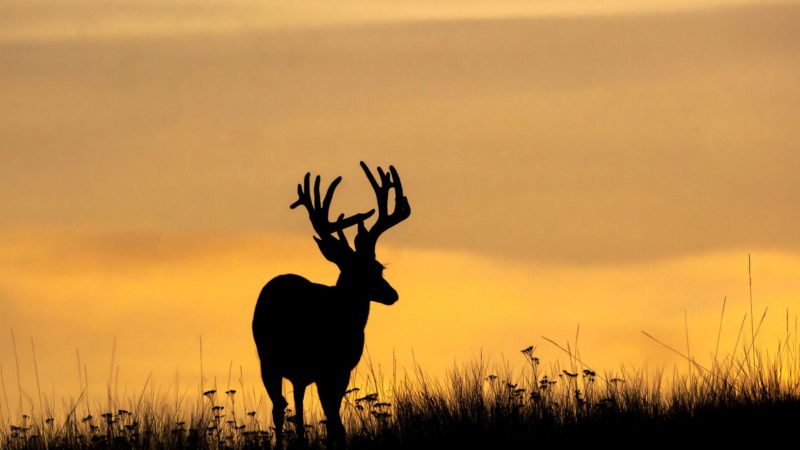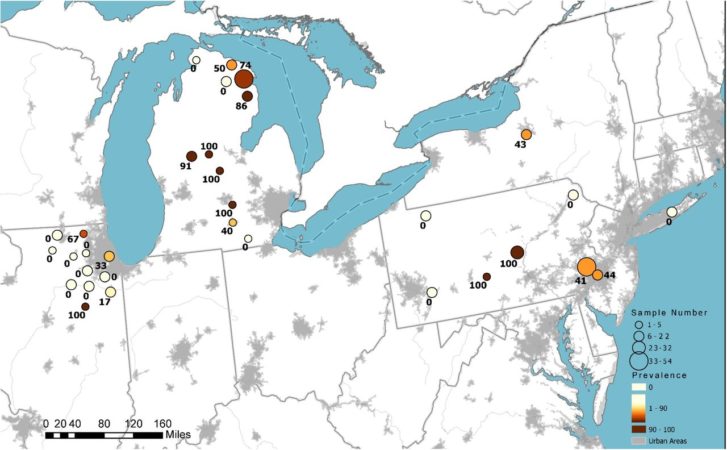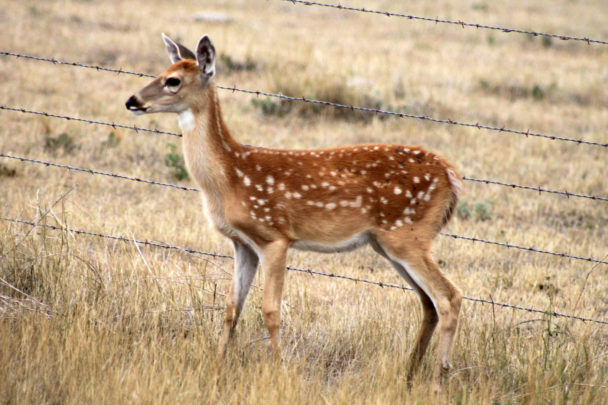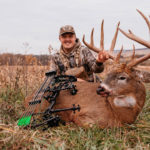A study published this week indicates that wild whitetail deer are contracting SARS-CoV-2 and developing the antibodies used to fight off the infection.
The study was conducted by a group of scientists at the National Wildlife Research Center in Fort Collins, CO. Although the study has not yet been peer-reviewed and officially confirmed, the findings appear to indicate that wild whitetail deer are being infected with the same virus that has killed millions of humans around the world.

From January-March 2021, the team received 385 white-tailed deer serum samples from four states (Michigan, Pennsylvania, Illinois, New York). In addition, the team selected 239 serum samples from 2011-2020 from five states that were also analyzed.
Antibodies to SARS-CoV-2 were detected in 40% of the samples from 2021, three samples from 2020 and one sample from 2019.

How Did A Wild Deer Contract Covid-19?
Nobody knows for sure how the SARS-CoV-2 virus entered the wild whitetail population, but there is no shortage of possibilities. A variety of activities bring deer and humans into close contact including captive deer farms, field research, wildlife rehabilitation and supplemental feeding, amongst others. We also can’t rule out transmission from other infected animals.
Why Are We Testing Deer For Covid-19?
A separate study published back in May tested the inoculation (infection) of whitetail fawns with SARS-CoV-2. The infected fawns began producing detectable levels of viral RNA after the 2nd day, which then spread to the non-inoculated fawns in the adjoining space.
None of the infected animals showed any outward signs of illness or died from the infection.

The initial purpose of the study was to look for reverse zoonosis from humans to wildlife. In layman’s terms, reverse zoonosis is the human-to-animal transmission of an infection or disease. Scientists selected whitetail deer as their subject matter due to the fact that they have ACE2 receptors very similar to humans, making them highly susceptible to infection.
Prior to this study, SARS-CoV-2 infections have been reported in dogs, cats, mink, tigers, and lions. Pigs, cattle, and chickens do not appear to be susceptible to infection from the virus.
Why Is This Important?
By now, we’ve all heard of (and are probably sick of hearing about) virus “variants”. In the case of wild animals, the potential exists for the virus to exist in one of these “reservoirs” where it can potentially evolve in a variety of ways. The most concerning of course is the possibility to evade vaccines, become more easily transmissible, or cause more severe reactions in humans.
Although these outcomes appear unlikely to happen at this time, the USDA’s Animal Plant Health Inspection Services (APHIS) will continue to monitor wildlife populations.
What Does This Mean For Hunters?
Right now, it doesn’t mean much for the deer hunting community at large. Most of us have little to no interaction with live whitetails, so catching the virus from an infected animal is highly unlikely.
There have been no reported cases of deer becoming sick or dying from the virus, so the impact on wildlife populations appears to be non-existent.
Although detectable levels of viral RNA were found in the nasal secretions and feces of the infected fawns, there is little data to support the virus being spread through these methods. Wearing the proper gear when handling deer carcasses and washing your hands when you’re done is all that is recommended at the current time.
Is Deer Meat Safe To Eat If the Deer Has COVID-19?
There is currently no evidence that people can get COVID-19 by eating meat from an animal with the SARS-CoV-2 virus. So long as you follow proper game handling procedures and practice good hygiene when processing and cooking your deer, you should be just fine.
For more information about the results of the study on SARS-CoV-2 in White-Tailed Deer, click here.

 By
By 



